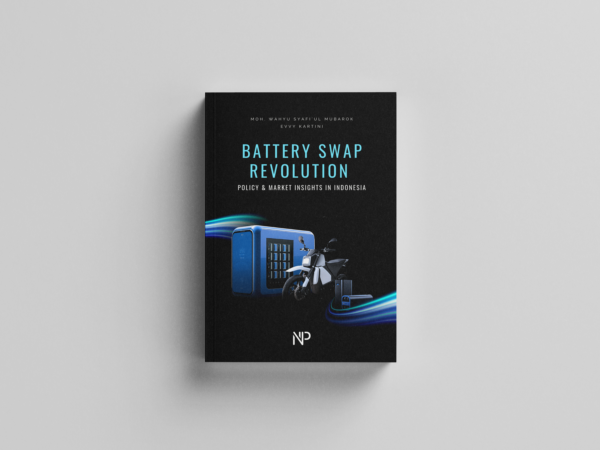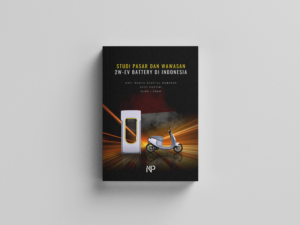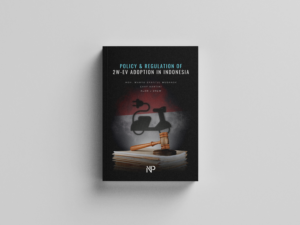As battery swapping emerges as a transformative solution for Indonesia’s electric vehicle (EV) ecosystem, this book explores how the country can capitalize on its vast two-wheeler (2W) market to drive EV adoption. With millions of motorcycles in daily use, transitioning from internal combustion engine motorcycles to electric two-wheelers (2W-EVs) presents a significant opportunity to reduce emissions and improve urban air quality.
The book examines Indonesia’s regulatory frameworks, highlighting key government initiatives such as the Battery-as-a-Service (BaaS) model, subsidies, tax incentives, and battery standardization through SNI 8928:2023 to support the scaling of battery swapping infrastructure.
By analyzing technological advancements, manufacturing capabilities, and market trends, the book shows how battery swapping can reduce charging times, lower operational costs, and minimize environmental impact. A comprehensive cost-benefit analysis demonstrates the long-term financial savings, user convenience, and environmental advantages, positioning battery swapping as a superior solution compared to traditional charging.





Reviews
There are no reviews yet.